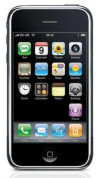Apple's filed three patent applications that mobile app developers are raising eyebrows at. The three patents involve design ideas rather than hardware, and cover high end fashion, hotel, and travel shopping via mobile device.
Here's what each application is designed to do.
The high-end fashion app is aimed at luxury shoppers, providing them with promotions and information about fashion events as well as chance to buy clothing via the device based on recommendations made according to the user's preferences. It will also provide ratings and reviews of stores as well as of the items they offer.
The hotel services application , covering hotel amenities and destination, aims to "provide a personal concierge." The app allows the user to reserve hotel services such as room service or movies via their device, as well as to check in and check out. It advises the user on the food and entertainment opportunities around them and allows them to make reservations or buy theater tickets.
The travel services app allows the user to make reservations for their trips and check in before airport arrival, as well as providing up to date flight and airport information. But it goes beyond that to allow them to reserve in-flight services in advance as well as notify people of their arrival as sound as they land. In what seems like a clear move to nail down advertising revenue, the application would display information on dining, transportation, and shopping opportunities both at the airport and the traveler's destination. It stores receipts as well.
The patents were applied for late last year but published by the United States Patent and Trademark Office on July 29, 2010. So what does this mean for developers? Some worry that the broad nature of the patent may point to lawsuits down the line as mobile device technology evolves, particularly since many are already working on designs along these lines. They point to earlier cases such as Amazon's use of its patent on one-click shopping to hamper their competitor Barnes and Noble. This marks another moment of what many believe to be an increasing trend towards the absurd in software patent law .

